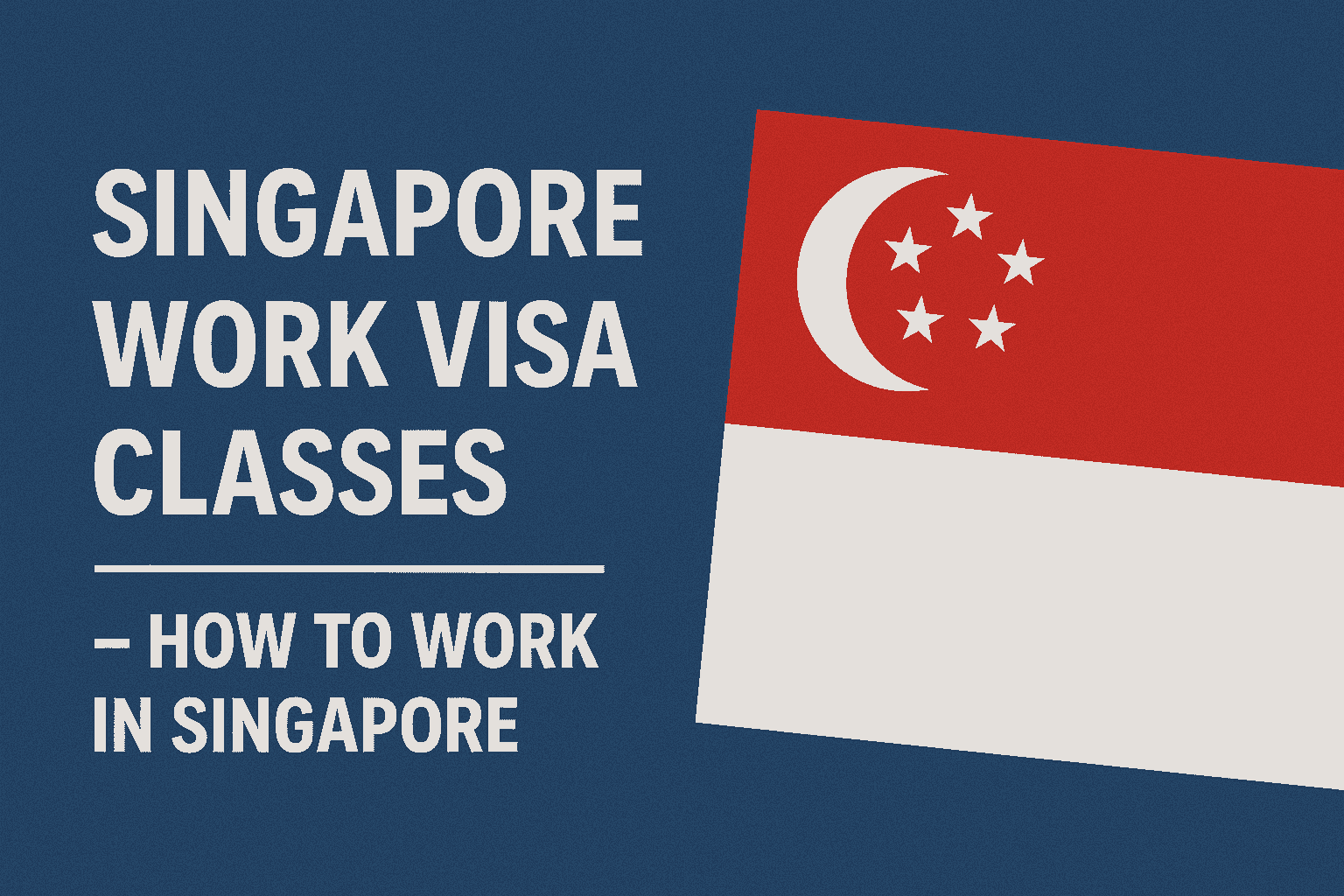Getting started
Professionals, skilled workers, and laborers from around the world flock to Singapore, one of Asia’s top business hubs. Foreign nationals must have a valid work visa (also known as a work pass) to work legally in Singapore. Depending on your skills, qualifications, and job duties, you may need a certain type of visa.
Singapore’s most popular work visa categories
EP (Employment Pass)
- Designed For: Managers, executives, and professionals from foreign countries
- Qualifications: Offer of a job in Singapore, minimum fixed monthly salary (typically higher for more experienced candidates), and acceptable qualifications
- Validity: Up to 2 years initially, renewable
- Supports: Dependents (via a Dependant’s Pass or Long-Term Visit Pass).
S Pass
- Designed For: Skilled workers at the mid-level
- Qualifications: Offer of a job in Singapore, a minimum monthly salary (lower than EP but above a set threshold), relevant work experience, and qualifications
- Validity: Up to 2 years initially, renewable
- Quota system applies (employers are limited in the number of S Pass holders they can hire)
Obtaining a foreign worker’s work permit
- Designed For: Employees in the sectors of construction, manufacturing, marine shipyards, processes, and services who are semi-skilled or unskilled
- Qualifications: Job offer from a Singapore-registered company, most sectors do not require a formal degree
- Validity: Up to 2 years, renewable
- Employers are required to pay quotas and levy payments
Foreign Domestic Workers’ Work Permits
- Designed For: Domestic helpers from abroad
- Qualifications: Applicants must be between 23 and 50 years of age, have a formal education of at least eight years, and be from approved source countries
- Validity: Up to 2 years, renewable
- It is necessary to meet special medical and training requirements
Performing Artists’ Work Permit
- Designed For: Workers in public entertainment establishments (such as nightclubs, lounges, and bars) are usually foreigners
- Qualifications: Offer of employment in an approved entertainment venue
- Validity: This is typically for a period of six months, with the possibility of renewal
EnterPass
- Designed For: Entrepreneurs from abroad starting and operating businesses in Singapore
- Qualifications: Innovation, funding, technology-based business are some of the criteria for innovative businesses.
- Validity: Up to 1 year initially, renewable
- The business must meet certain requirements to allow the bringing of dependants
PEP (Personal Employment Pass)
- Designed For: Foreign professionals or those with existing Employment Passes who earn high incomes
- Qualifications: The minimum fixed monthly salary threshold should be significantly higher than the EP
- Validity: 3 years, not renewable, but holders can switch jobs without reapplying for a new pass
- Unattached to a specific employer
Employment Pass for Training
- Designed For: Experiencing practical training in Singapore as a foreign professional
- Qualifications: Undergraduates or graduates from approved universities, or trainees from overseas offices of Singapore-based companies
- Validity: Up to 3 months, non-renewable
Work Permit for Training
- Designed For: Trainees with semiskilled or unskilled abilities
- Qualifications: An approved employer can provide practical training in Singapore
- Validity: Up to 6 months, non-renewable
Important Information for Immigrants
- Levy and quota systems: The levy is charged to employers with S Passes and Work Permits—they must adhere to a quota limit and pay a levy.
- Health Checkup: Medical examinations are required before or soon after arrival for most work permits.
- Sponsorship by family: The EP, PEP, and EntrePass are the only passes that can sponsor family members.
- Renewal of Passes: It is a condition of renewal that the employee continues to work and meets the salary and qualification requirements.
Conclusion
In Singapore, work visas are available for a wide range of skill levels, including executives, entrepreneurs, and skilled and unskilled workers.
Your visa class will be determined by your qualifications, your job type, and the employer’s sponsorship.
